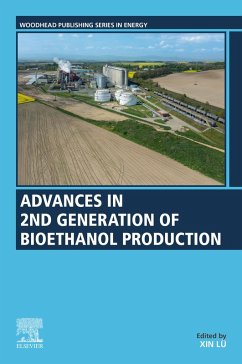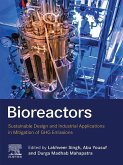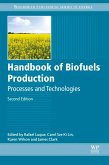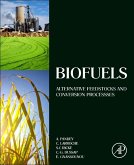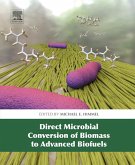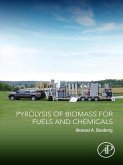Advances in 2nd Generation of Bioethanol Production presents a comprehensive overview of technologies and strategies for the conversion of lignocellulosic biomass. This includes issues like sustainable production, environmental and economic benefits, and the main hurdles for upscaling and achieving commercial viability. The book assesses the current biomass conversion technologies, their readiness level for commercial production, and applications of bioethanol in bioenergy and chemical feedstock. The essential conversion process of 2nd generation biofuels, including feedstock composition and pretreatment, is then broken down, with special focus on advantages and pitfalls of each feedstock and process. It also explores the advances and challenges of bioprocessing, hydrolysis technologies and simultaneous fermentation of pentose and hexose. Finally, it presents the current status and bottlenecks for industrial production of bioethanol, as well as its future prospects.
Its interdisciplinary approach, drawing upon plant biology, chemistry, biochemistry, microbiology, and genetics, makes Advances in 2nd Generation of Bioethanol Production a must-have reference for researchers in academia and industry R&D. It allows them to compare challenges and opportunities of new technologies and identify the gaps where new technology is needed. Practitioners in the industry also benefit from the information on working principles, design and control of the bioethanol production process, highlighting areas where technology innovation and investment should be placed. Graduate students and researchers newly entered in this field find here a key-resource to thoroughly understand the process as well as the fundamentals of bioethanol and bioproducts production from lignocellulosic biomass.
Its interdisciplinary approach, drawing upon plant biology, chemistry, biochemistry, microbiology, and genetics, makes Advances in 2nd Generation of Bioethanol Production a must-have reference for researchers in academia and industry R&D. It allows them to compare challenges and opportunities of new technologies and identify the gaps where new technology is needed. Practitioners in the industry also benefit from the information on working principles, design and control of the bioethanol production process, highlighting areas where technology innovation and investment should be placed. Graduate students and researchers newly entered in this field find here a key-resource to thoroughly understand the process as well as the fundamentals of bioethanol and bioproducts production from lignocellulosic biomass.
- Presents fundamentals and state-of-the-art of available pathways for bioethanol and bioproducts production from lignocellulosic biomass
- Discusses key-challenges for large scale production of bioethanol, such as pretreatment and hydrolysis
- Covers the specificities of various feedstocks and processes, the role of microorganisms in fermentation, saccharification limitations and challenges in the C5 and C6 fermentation
Dieser Download kann aus rechtlichen Gründen nur mit Rechnungsadresse in A, B, BG, CY, CZ, D, DK, EW, E, FIN, F, GR, HR, H, IRL, I, LT, L, LR, M, NL, PL, P, R, S, SLO, SK ausgeliefert werden.

